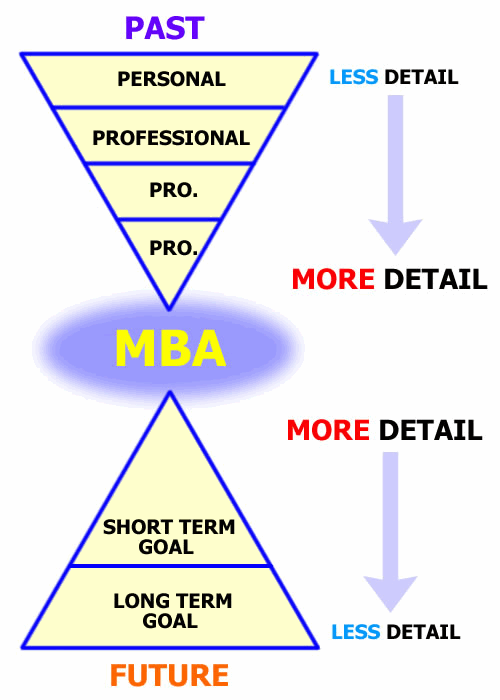The MBA Goals Essay

MBA admissions committees (adcoms) are like venture capitalists – they want to “invest” in the best people with the best ideas. Your goals essay then is your “personal business plan,” expressing your short- and long-term career ambitions and why they matter to you professionally and personally. The most compelling goals express an opportunity (usually business-related, but not necessarily) that you will be uniquely qualified to pursue immediately after graduating. Your goals need to be realistic (i.e., possible given your previous personal/professional experience plus an MBA) and ambitious (e.g., a significant jump in your current organization, changing your career, starting your own organization). If not, adcoms will not be persuaded, and they will read the rest of your essays skeptically. The goals essay is one of the most important you will write during the application process.
Sample Goals Essay Questions
Describe your career progress to date and your future short-term and long-term career goals. How do you expect an MBA from Wharton to help you achieve these goals, and why is now the best time for you to join our program? (1,000 words) (Wharton School of Business)What are your short-term and long-term post-MBA goals? How will Columbia Business School help you achieve these goals? (recommended 1000 word limit) (Columbia Business School)
What are your career aspirations? How will your education at Stanford help you achieve these? (2-3 double-spaced pages) (Stanford Graduate School of Business)
Despite the differences, these questions ask essentially the same thing: what are your career goals and how will an MBA help you accomplish them? The best answers explain how an MBA will bridge your personal and professional experience with your career goals:

Furthermore, the following framework can help you structure a convincing essay.
1) Introduction – There are several ways to open your essay, including a brief statement of your goals and your background as it relates to those goals. Another possibility includes changes in the economy or a particular industry that enable your goals.
2) Career Review – Your accomplishments, especially ones related to your goals, to establish your current abilities and strengths.
3) “However” – this section explains what you lack (e.g., skills, experiences, networks, etc.) in order to accomplish your goals
4) Short Term Goal – a clear and detailed plan to be launched after graduation
5) Long Term Goal – can be more general, but should still express the opportunities and challenges in your chosen industry, perhaps in 10 years
6) Why School X? – a complete list of the things that can help you achieve your short and long term goals. Many MBA programs offer the same things (classes, internships, connections, consulting projects, etc.), so only by being specific in your goals can you connect with the specifics of a particular program.There are also personal or emotional reasons for choosing an MBA program. More about that here.
Your “Short-Term Goal” is the foundation and hub of your goals essay. It illuminates your most relevant experience (“Career Review”), what you lack to achieve it (“However”), and therefore establishes your need for an MBA (“Why School X?”). Please note that this structure is flexible and parts can be omitted (usually “However”) or combined, however strong goals essays usually have these components either explicitly or implicitly.
Deciding how much detail to include especially regarding your career background is challenging. In general, the closer you are to your MBA, the more detail you need, as shown in the following diagram.

The upper triangle represents your focused progress towards your goals (and your MBA) by detailing your most recent professional accomplishments.
The lower triangle represents your expanding career after your MBA, with your short-term goals explained in more detail since they should be easier to visualize. Your long-term career goals require less detail since they are further away, but they will hopefully show the far-reaching, positive impact of your career vision.
